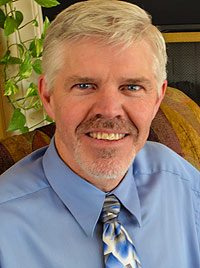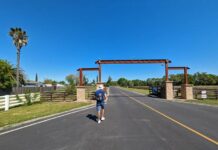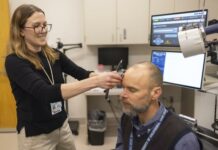Exercise is a no-brainer for brain health, reducing dementia and depression, and preventing memory loss
In an age of skyrocketing health care costs and seriously debilitating mind-altering illnesses such as anxiety, Alzheimer’s, depression and dementia, prevention seems to be a prudent strategy. Embracing exercise as a means of prevention seems an obvious “no-brainer” for Americans seeking both improving overall health and brain health.
Exercise options can be low cost and is widely accepted as a significant part of a healthy lifestyle.
According to Dale Bredesen, MD, in his popular book, The End of Alzeimer’s, regular exercise is extremely beneficial in reducing Alzheimer’s by decreasing both insulin resistance and stress. Bredeson also stresses the many benefits of exercise as it improves and/or increases: the size of the hippocampus, an important memory center; blood flow; sleep; mood; and the survival of newborn neurons.
Beneficial for preventing and overcoming anxiety and depression
According to Daniel Amen, MD, whose centers have already viewed 140,000 brain scans emphasizes that exercise is one of the best natural treatments to overcome anxiety and depression, and he point out that it can be done for free! Dr. Amen says that exercise activates the same pathways in the brain as morphine and increases the release of endorphins, the natural feel-good neurotransmitters.
Dr. Amen cites a depression study that compared the benefits of exercise to those of Zoloft, a prescription drug. Exercise proved as effective in halting depression as Zoloft after 12 weeks. By 10 months, exercise worked better than Zoloft with zero negative side effects! Dr. Amen enthusiastically cheer leads exercise as “not only a fountain of youth but also the closest thing to a happy pill that you will ever find.”
In addition, Princeton University researchers reported that physical exercise also helps combat anxiety by assisting the brain to more resilient during stressful times.
Exercise and the Brain
Mercola quotes Forbes magazine in saying that: “Research has discovered that we can foster new brain cell growth through exercise. The hippocampus, a brain area closely linked to learning and memory, is especially receptive to new neuron growth in response to endurance exercise.
Exercise stimulates the production of FNDC5 which stimulates the production of Brain Derived Neurotrophic Factor (BDNF), which in turns stimulates the growth of new nerves and synapses… and also preserves the survival of existing brain cells.”
In essence, physical activity produces biochemical changes that strengthen and renew not only the body but also the brain-particularly areas associated with memory and learning.
You Cannot Fool Your Body in the Long Run
Non-exercise activity and movement is also critical for optimal health, as explained by Dr. Joan Vernikos. Sitting for extended periods of time is actually an independent risk factor for poor health and premature death. Even if you exercise regularly and are fit, uninterruptedly sitting for a great percentage of the time increases your risk of dying prematurely.
Simply standing up, a minimum of 30 times a day, is a powerful antidote to long periods of sitting.
Your Brain Health Is Directly Related to Exercise
John J. Ratey, a psychiatrist who wrote the book Spark: The Revolutionary New Science of Exercise and the Brain, states that there is overwhelming evidence that exercise produces large cognitive gains and helps fight dementia.
Seniors who take up a fitness regimen can improve their cognitive function.
For example, a team at the University of Edinburgh followed more than 600 people, starting at age 70, Three years later, not surprisingly, seniors who engaged in the most physical exercise showed the least amount of brain shrinkage.
Similarly, Kirk Erickson, PhD of the University of Pittsburgh, found that adults aged 60 to 80 walking moderately (just 30 to 45 minutes, three days per week for one year) increased the volume of their hippocampus by two percent.
“Generally in this age range, people are losing one to three percent per year of hippocampal volume. The changes in the size of the hippocampus were correlated with changes in the blood levels of the brain-derived neurotrophic factor (BDNF).”
Erickson also found higher fitness levels associated with a larger prefrontal cortex. He called exercise “one of the most promising non pharmaceutical treatments to improve brain health.”
Turn Back Your Biological Clock
According to research from Rush University Medical Center in Chicago, individuals with weaker muscles appear to have a higher risk for Alzheimer’s and decline in brain function over time. Those at the 90th percentile of muscle strength had about a 61 percent reduced risk of developing Alzheimer’s compared with those in the 10th percentile.
Enhances Brain Function and Mental Health
In an article published just this week by Runner’s World, Scott Anderson, a veteran of over 100,000 miles, wrote that “for depression and anxiety, running is a unique therapy. Running puts everyone in a good mood. But for some of us, our miles are key to managing depression and anxiety.”
Whether you run, hike, or engage in other forms of exercise, being physically active is a critical component to what can be referred to as “the good life.” Although research may tell us that exercise prevents memory loss and helps people overcome depression and anxiety, it is the body and mind itself that lets us know that we ultimately feel better after a hike, a swim across a lake, or a vigorous game of tennis.
It’s never too late to start moving more frequently and increase your regular exercise.
What will you do to enhance both your brain function and mental health?

Explore additional topics from Dr. Godby, ND, MA at Natural Wellness.
As a naturopathic doctor for the last 18 years, I have witnessed the power of a preventative lifestyle and naturopathic medicine to transform the health and lives of thousands of patients.
Sacramento Naturopathic
2530 J Street, Suite 100
Sacramento, CA 95816
Phone: (916) 446-2591
sac-nd.com/dr-dennis-godby-nd-ma
(21+ years strong)
Welcome to the brighter side!
Get in front of local customers! 24/7 (365)




















